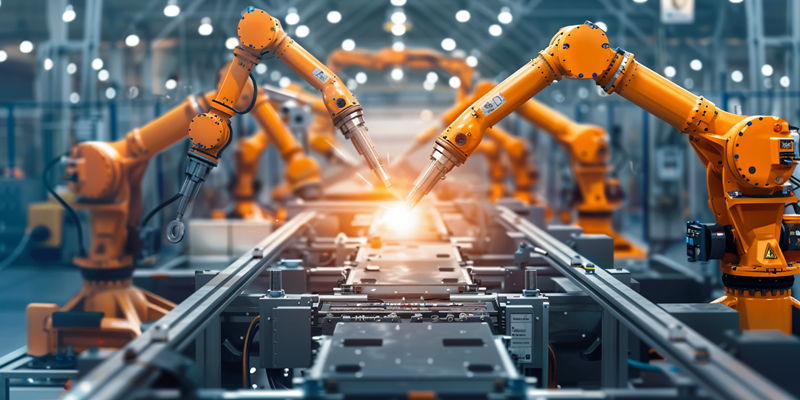The onset of the 2000s heralded unprecedented advancements in AI and ML, reshaping the technological landscape dramatically. Industries worldwide, faced with ever-changing market demands, are increasingly leveraging these innovations not only to enhance their operations but to drive a revolutionary overhaul in their approach to automation. The integration of intelligent systems heralds a new era; they are designed to learn, foresee, and adapt, outpacing the capabilities of the dated models that once represented the pinnacle of industrial efficiency. The marvel of AI and ML lies in their unparalleled ability to mirror and potentially surpass human ingenuity in problem-solving and decision-making, charting a new course for the future of the industry. As such, businesses are rapidly harnessing these cutting-edge tools to stay competitive and inventive in an era where technological agility is more vital than ever.
Pioneering Smart Automation
Industrial automation has noticeably pivoted from the rigid, rule-based protocols of yesterday to today’s AI-infused adaptive systems. Where earlier automation was akin to a well-rehearsed play—a set of precise movements performed to a fixed script—modern automation thrives on improvisation. It’s a dynamic theater where each act is shaped by the wealth of data flowing in real time. Adaptive automation observes, learns, and makes decisions; a quality that is particularly indispensable when encountering novel or unpredictable scenarios that lie beyond the foresight of their human creators.
Intelligent systems are not merely about coping with the unexpected; they actively forecast it. By perpetually analyzing trends, AI-driven machinery proactively adjusts operational parameters, minimizing waste and optimizing production without skipping a beat. The implications of such self-sufficient systems are monumental, ranging from extended equipment lifespans to dramatically lowered costs, as they circumvent the pitfalls of unscheduled downtimes and maintenance emergencies. With AI and ML at the helm, factory floors and supply chains are becoming increasingly autonomous, leaving humans to oversee rather than execute.
Enhancing Decision-Making Through Intelligence
AI and ML have revolutionized how machines analyze and respond, enabling them to handle complex tasks once reserved for human experts. These technologies empower machines with the discernment to tackle sophisticated challenges like advanced quality control and intricate demand forecasting. The decision-making process is now supported by nuanced algorithms which provide visionary solutions, putting industries at a strategic advantage.
This smart technology interconnects a network of devices, optimizing their collective actions. An example is the precise timing of robot arms and conveyors in an automotive assembly line, enhancing production efficiency. Another is in air traffic control where AI maintains the delicate flow of aircraft, improving safety and efficiency. By advancing the fundamentals of industry operations, AI and ML have set transformative benchmarks for industries to aim for, reshaping and raising performance standards.

